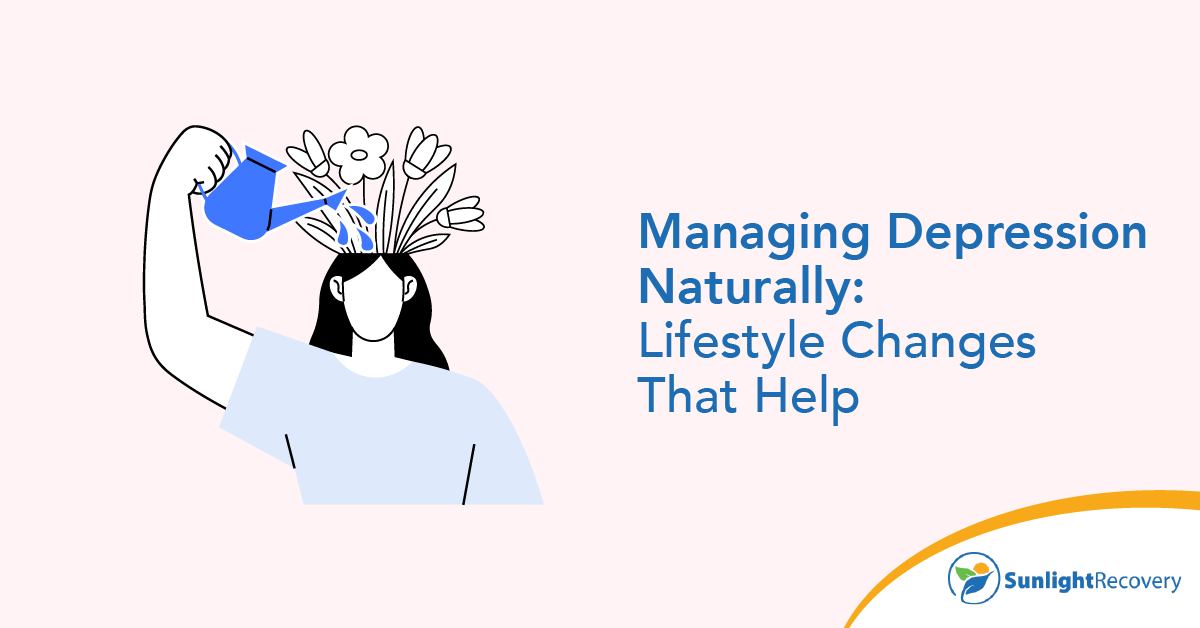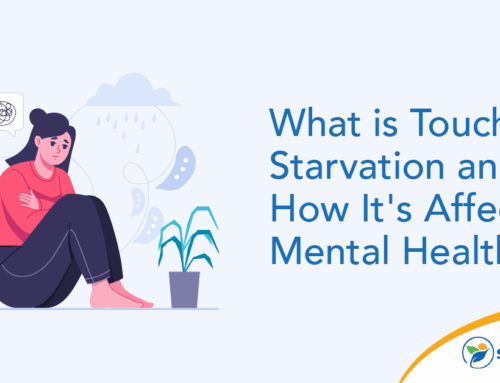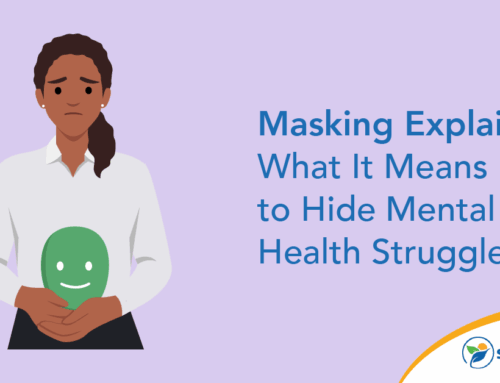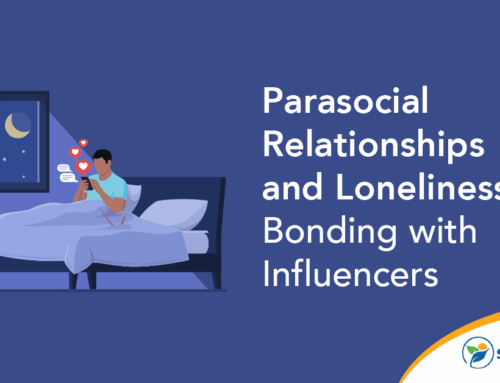Depression is one of the most widespread mental health conditions in the United States. An estimated 21 million American adults report having at least one major depressive episode each year. While therapy and medication are the best tools for treating depression, some home remedies for depression can help, too. Keep reading for the lifestyle changes for depression that are known to be the most impactful.
5 Lifestyle Changes for Depression
Here are the five most common, most effective lifestyle changes for depression:
1. Exercise
It can be hard to convince yourself to go to the gym, on a walk or for a bike ride. But after you do it, you feel terrific. And you suddenly remember that exercise almost always makes you feel this way. There’s a simple explanation.
Exercise releases endorphins, a natural brain chemical that helps elevate mood and relieve pain. It can also reduce stress, improve self-esteem and reduce negative thoughts. You also feel a sense of accomplishment after exercising, which can boost confidence for the day.
It’s been well-established that incorporating exercise into your daily routine is an all-natural way to fight depression. The hardest part is getting started, so don’t expect too much from yourself in the beginning. Start with just 5 minutes a day. As you build up a routine, you’ll find you want to exercise for longer periods.
2. Diet and Nutrition
Everyone has sat down to binge on greasy pizza, delicious ice cream and chocolate. In the moment, everything tastes delicious. But as soon as you’re done, your stomach feels awful, you feel ashamed and guilty and you get exhausted. You may even wake up the next day feeling groggy and lethargic.
The choices you make with your diet directly impact your mood. When you eat unhealthily, your body lacks energy for the day. Additionally, poor eating habits can often trigger unpleasant feelings of shame, regret and sadness.
The opposite is true, too. Eating a well-balanced diet gives your body and mind the fuel they need to work optimally. A diet full of healthy fats, omega-3s, protein, fiber and whole grains can help boost your mood and decrease the adverse effects of depression.
Just like with exercise, don’t expect to change your diet entirely overnight and be able to stick to it. Make small changes so the shift feels manageable. Focus on improving your breakfast, then snacks and then lunch and dinner.
3. Sleep
Sleep and depression can have a complicated, cyclical relationship. For some, depression means being unable to get out of bed and oversleeping for several hours every day. For others, depression can trigger insomnia, which makes falling asleep hard. However, not getting enough sleep can negatively impact the mind and trigger more negative thoughts, so the depression deepens.
The trick with sleep is to get the right amount. Too much or too little can have a harmful impact on the body and mind. Men and women should aim to get between 7 and 9 hours of restful sleep every night.
If you’re having trouble sleeping well, you can try the following steps:
- Get blackout curtains.
- Use a sound machine.
- Stop using electronics 1 hour before bed.
- Maintain the same schedule on weekdays and weekends.
- Limit caffeine and alcohol intake.
- Invest in high-quality sheets, pillows and mattress.
Getting enough sleep can dramatically improve your mood, give you energy throughout the day to take on challenges and reduce stress. If you’re not struggling with insomnia but instead struggle to get out of bed, know that this is a sign of moderate or severe depression. Please speak to a mental health professional as soon as possible.
4. Mindfulness Practices and Meditation
Depression is a serious mental health condition; it’s not just having bad or sad thoughts. So no amount of mindfulness and trying to practice gratitude will cure your depression. But in combination with therapy and other practices, mindfulness can have a positive impact and reduce symptoms.
A primary focus of therapy for depression is learning how to spot harmful thoughts and cope with depressive triggers. Mindfulness practices and meditation can also help enhance this practice. Meditation and mindfulness can calm you down, improve focus and help with emotional regulation.
Some activities you can try to incorporate into your daily life are:
- Meditating in the morning or before bed
- Journaling
- Yoga
- Going for quiet walks outside
5. Maintain Social Connections
Many people suffering from depression tend to self-isolate. You don’t feel good about yourself or life in general, so it’s challenging to go out and spend time with others who seem fine.
But humans need social connections. It can fill your cup to spend time with someone who knows you and is interested in you. Bonding with loved ones and friends can allow you to discuss your problems. Lastly, it reminds you that others love and care for you.
Aim to make social plans at least one to two times a week to boost your endorphin levels and mental health.
Why People Look for Natural Cures for Depression
There are many reasons someone might be hesitant to speak to a counselor or take antidepressants. Many people like to look for cures that don’t involve seeing a doctor, either due to a lack of insurance or a distrust of the medical system. Others have trouble admitting to anyone else that they have a problem.
Some people are also scared of antidepressants because they believe some misconceptions about these medications. People may wrongly assume that their therapist or doctor will push antidepressants on them. However, the choice to go on them is always a collaborative discussion and decision made by the patient and doctor.
Lifestyle changes can have some impact on a person’s depression. But it’s important to remember that there’s no shame in asking for help.
The Quickest Path to Recovery
Natural lifestyle changes for depression can be beneficial, but lifestyle changes alone may not be enough. Someone with depression usually needs to seek therapeutic help. Sometimes medication might be the right choice, too.
Lifestyle changes can be most appropriate for someone with mild symptoms. If you’re struggling with moderate to severe depression, you must seek help as soon as possible. Depression doesn’t go away on its own. In fact, it often worsens with time if you’re not seeking professional help. Make an appointment to talk to someone today.
Remember that depression is highly treatable, but not getting treatment can mean the condition worsens and becomes life-threatening. Seeking help is the best thing you can do for yourself.
Depression Treatment at Sunlight Recovery
You don’t have to struggle with your depression one more day. The kind, experienced mental health professionals at Sunlight Recovery can help you feel better and return to your old self. Contact us today to learn more about our options for depression treatment.







